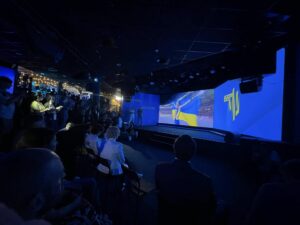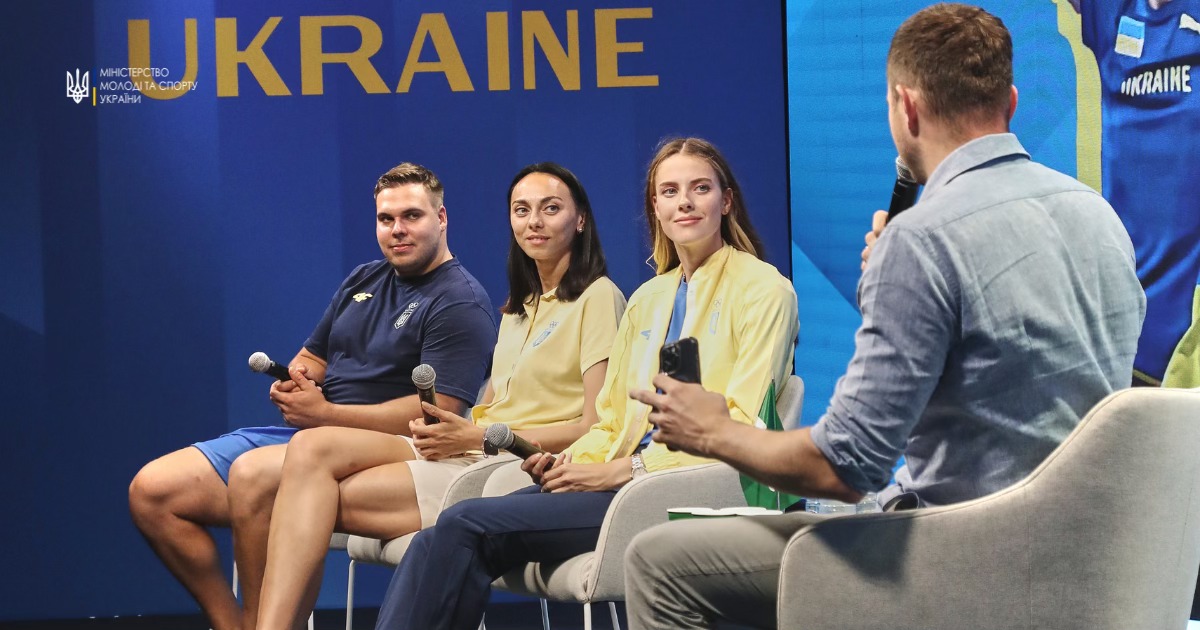For 16 days, the Ukrainian House at the Parc des Nations opened its doors to celebrate the Olympic Games. This space embodied the Olympic spirit while honoring Ukrainian athletes who, despite the ongoing war, achieved remarkable performances.
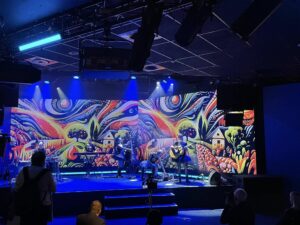
The Ukrainian House was inaugurated on Saturday, July 27, in the presence of Matvii Bidnyi, Ukrainian Minister of Youth and Sports; Amélie Oudéa-Castéra, French Minister of Sports and the Olympic and Paralympic Games; Vadym Omelchenko, Ukrainian Ambassador to France; Sebastian Coe, President of the International Athletics Federation; and Vadym Gutzeit, President of the Ukrainian National Olympic Committee and Olympic Champion (Barcelona 1992).
Visitors had the chance to watch the Olympic Games opening ceremony and follow live competitions on a giant screen, sharing the joy and emotion of Ukrainian victories with every medal won.
The Ukrainian House also offered an authentic culinary experience, featuring traditional dishes such as borscht, vareniki, and chicken Kyiv. Renowned chefs Yevhen Klopotenko and Volodymyr Yaroslavskyi hosted discussions on Ukrainian cuisine, followed by tastings that celebrated the country’s rich culinary traditions.
Ukraine won 12 medals during the Games, ranking 22nd in the gold medal count and 17th overall, with 3 gold, 5 silver, and 4 bronze medals. These impressive achievements in fencing, rifle shooting, and high jump—achieved under extreme war-related training conditions—were celebrated daily with Ukrainian, French, and international audiences.
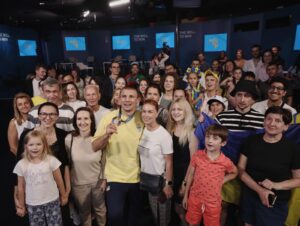
Medalists such as Olga Kharlan (fencing), Zhan Beleniuk (wrestling), Parviz Nasibov (wrestling), Yaroslava Maguchih (high jump), Serhiy Koulish (shooting), and Oleksandr Khizhnyak (boxing) were joined by high-profile athletes including Oleksandr Usyk (undisputed heavyweight boxing champion), Mykhailo Romanchuk (freestyle swimming), Maryna Bekh-Romanchuk (long jump), Elizabeth Chevtchenko (judo), and Sergiy Stakhovsky (tennis). Ukrainian football legend Andriy Shevchenko, now President of the Ukrainian Football Association, shared his vision for the future of sports in Ukraine.
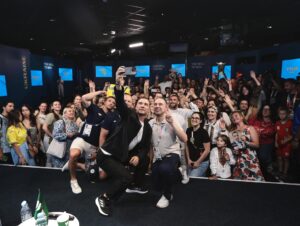
The Ukrainian House also featured film screenings and documentaries such as “The Ukrainian Flame”, “Athletes of War”, “Football Must Go On”, and “Soldiers of Song”, followed by discussions with filmmakers. Ukrainian designers, including Elvira Hasanova, Alina Kachorovska, Ivan Frolov, and Ross Satana, showcased their works, while renowned Ukrainian blogger Anton Ptouchkine presented his film “We, Our Pets, and the War”.
To provide insight into Ukraine’s realities, personalities like Yuriy Haponchuk, a National Guard member and player on Ukraine’s amputee football team, and Serhiy Dubovy, a defender of Mariupol, shared their stories. Visitors also met two young girls who underwent amputations due to Russian attacks: 8-year-old gymnast Oleksandra Pascal, who lost her leg, and Yana Stepanenko, who lost both feet and courageously ran the Boston Marathon in 2023. Jean-Noël Barrot, French Minister for Europe, joined discussions to express solidarity and support for Ukraine’s victims.
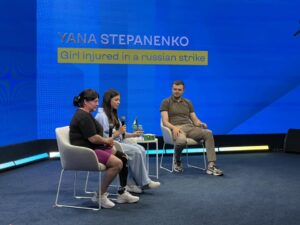
A highlight of these two weeks was the departure of a humanitarian aid truck from the Ukrainian Olympic House to Uzhhorod, carrying medical supplies and an emergency vehicle. This effort, supported by the association SAFE, the Ukrainian Embassy in France, and the Transcarpathian Medical Aid Committee (CamZ), marked the 211th truck dispatched from France as part of this humanitarian bridge.
The Ukrainian House also welcomed 46 Ukrainian teenagers, aged 15 to 18, from Kalynyvka, in partnership with Sainte-Menehould, to share in the excitement of the Olympic Games.
Finally, exclusive concerts were held by renowned Ukrainian artists, including the Dakh Daughters and Jamala, winner of the 2016 Eurovision Song Contest.
During these 16 days, the Ukrainian House became a hub for discussions, interviews, concerts, and celebrations of Ukraine, its culture, and its traditions—while keeping the realities of the ongoing war in focus.
